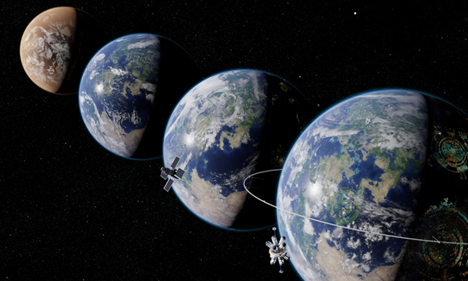Does a Planet Have a Mind of Its Own?
Plants on Earth evolved to harness photosynthesis to survive, releasing the oxygen that changed our planet.
Researchers led by Adam Frank, the Helen F. and Fred H. Gowen Professor of Physics and Astronomy at the University of Rochester, and colleagues, in a paper published in the International Journal of Astrobiology, looked at whether the collective activity of cognition and action based on this cognition can change a planet.
Their “thought experiment” combines current scientific understanding about the Earth with broader questions about how life can alter a planet.
Based on the Gaia hypothesis, even a non-technologically capable species can display planetary Intelligence. The key is that the collective activity of life creates a self-maintaining system.
The researchers posit four stages of Earth’s past and possible future, including:
- Stage 1 – Immature biosphere
- Stage 2 – Mature biosphere
- Stage 3 – Immature technosphere
- Stage 4 – Mature technosphere
The researchers believe that this course of study will provide information about the past, present, and future survival of life on Earth and help in the search for life and civilizations outside our solar system.

